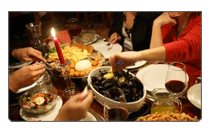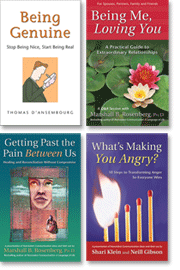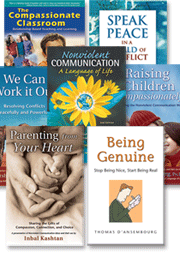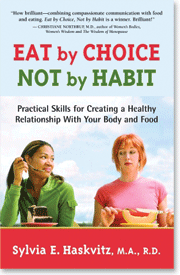Self-Empathy, continued
Our mind assigns meaning to everything we experience. Consequently, emotions get stimulated and, when triggered, we seem to forget who the other person is to us, all the needs met by the relationship and what we want in this particular situation. Often we react in one of two ways: blaming the other person or blaming ourselves.
Neither option is effective, yet our long-term trigger patterns and self-protective strategies take over.
Whenever we focus on what we don’t like, we create resistance and lose connection to our needs, thus preventing us from taking actions that will meet them. This often causes us to re-act rather than act. Conversely, the more we uphold a consciousness of needs as motivators of our actions, the more we empower ourselves to choose responses in line with our values.
The question is: how do I empower myself to live from a need-based consciousness? One strategy is Self-Empathy.
The first step of the process is to acknowledge that while events and people (stimuli) may stimulate our feelings, they are not the cause of them. The cause is our reaction to the stimulus.
Our reaction is the mental processing (the assignment of meaning) that goes on internally in the aftermath of the stimulus, and is linked to some form of assessment of needs as “met or unmet.”
Self-Empathy, then, is a powerful process to pause and offer ourselves the space between the stimulus and our response, thus empowering ourselves to be at choice and reduce reactive behaviours.
Here is how it works:
Start by taking a few deep breaths. Physiologically this calms the body/mind system allowing a more integrated brain functioning. Then, observe and accept your judgments without censoring them or identifying with them. Finally, connect to your feelings and needs underneath the judgments.
Here’s an example in Mary’s life:
I was visiting family over the Christmas Holiday. I had already said good-bye to my elderly parents and was emotionally ready to leave and then my plane was delayed two days. I struggled finding meaningful ways to spend the next two days. In the last few hours before leaving I asked my parents if they would like me to take down the decorations. I wanted to contribute to them and keep myself occupied. When I asked them, my father said, “There are five big boxes where the decorations go!” in a voice that I interpreted as agitated. I assumed he was asking me to leave the decorations in place. I proceeded to give myself silent Self Empathy:
Inner voice: I have to find something to do with myself. I cannot sit another minute.
Self Empathy: Are you bored and frustrated and want stimulation and a sense of meaning?
Inner voice: Well, yeah and what’s his problem? Why does everything have to be such a big deal? How hard could it be to take down decorations?
Self Empathy: Are you annoyed and sad because you’d like to know that your needs matter?
Inner voice: Yes, I feel sad sitting here waiting for the hours to pass. I don’t want to say good bye to them again.
Self Empathy: So, you’re sad when you think about saying good bye to them again? I’m guessing that’s because you love them?
Inner voice: Yeah, I don’t want to do anything that will stimulate pain for them.
Self Empathy: Are you thinking that contributing to them in these last hours will ease the pain you all may be feeling about you leaving?
Inner voice: Yeah. I want to do something productive so I’m not just wallowing in my sadness. I’d like our last few hours together to be meaningful. Hey, maybe Pop feels sad and on edge too?
At this point I had clarified the primary underlying needs -- relief from the sadness and a strong desire to contribute to them. I also had a guess about what my father might be feeling and needing. Five minutes of self-empathy and I was in a better position to continue the conversation with him.
The request:
Mary: Pop, when you said that the decorations “go in five big boxes,” were you trying to discourage me from putting them away?
Pop: No! I wanted you to know that it’s a big project and I don’t know where anything goes.
Mary: So, you’d like me to take down the decorations if I don’t ask you where things go.
Pop: Yes, I’d love it if you would take them down, but I don’t know where anything goes.
Mary: Okay, how about if I put them away without asking you questions about it?
Pop: Beautiful! I’ll help!
The result was that my father and I spent an hour taking down the decorations and finding ways to store them. We did the project together, which allowed for an even deeper connection. Had I not taken a few minutes for Self Empathy, I would have likely left frustrated and annoyed, my needs for connection and love being distant.
It takes time and practice to develop the skills and spaciousness to observe without identifying with our reactive mind, initiate an inner connection with our feelings and needs, hold with compassion the life energy that is alive in us in the moment, and consequently experience inner relief, self-understanding and self-care.
From a brain science standpoint, we know that stress causes distorted and confused thinking, compromises short term memory, brings us back into the past or leads us to project fear into the future, taking us out of the present moment. The shutting down of the higher processes of the brain leaves us with intense emotions; impulsive, rigid and repetitive reactions; lack of self-reflection and inability to consider the other person’s point of view.
Connecting to our feelings and needs through Self Empathy empowers us to:
- Realign ourselves with the life within us and our deepest intentions and values.
- Tap into our own inner resources and ground ourselves in the present.
- Open our heart compassionately towards the person whose behaviour stimulated uncomfortable feelings. So, if you notice yourself feelings tense over the Holidays, how about pushing the Self-Empathy Pause Button?
Mary Mackenzie is a Certified CNVC Trainer and author of Peaceful Living: Daily Meditations for Living with Love, Healing and Compassion. She holds an MA degree in Human Relations and is a trained mediator. Mary is the co-founder of the NVC Academy and the executive director of the Flagstaff Center for Compassionate Communication. She teaches NVC to individuals, couples, and families, and offers retreats and workshops to help organizations strengthen their productivity and success.
Stephanie Bachman Mattei is the mother of three children and a graduate of the 2006 Parent Peer Leadership Program -- a program of the Peaceful Families, Peaceful World Project of CNVC and BayNVC. She has been consistently involved in this program as an Assistant and Co-Trainer. Stephanie offers parenting/attachment phone counseling and NVC based telecourses. Reach Stephanie by email
Keep learning these vital communication skills with these books and training resources:
This Month's Specials:
- NVC Extraordinary Relationships Book Package - Save 50% off list price through November 30, 2010
- Reference Library Book Package - Save 55% off list price through November 30, 2010
Every Day Specials:
- Being Genuine - Save 30% on this book every day from PuddleDancer Press
- Being Me, Loving You - Save 30% on this booklet every day from PuddleDancer Press
- Getting Past the Pain Between Us - Save 30% on this booklet every day from PuddleDancer Press
- What's Making You Angry - Save 30% on this booklet every day from PuddleDancer Press
- NVC Marshall B. Rosenberg, Ph.D. Book Package - Save 45% on this book package every day from PuddleDancer Press
- NVC Starter Kit Book Package - Save 40% on this book package every day from PuddleDancer Press








